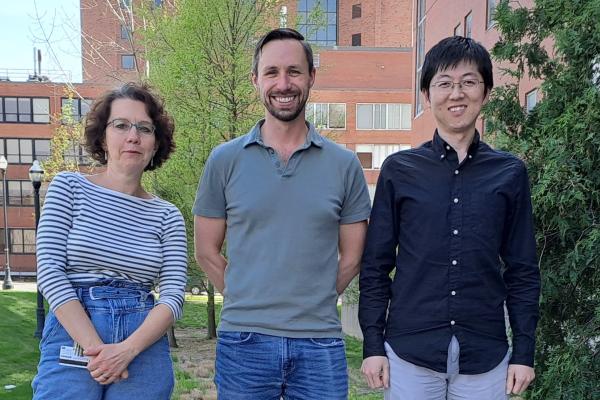Tie the Terminator Down

Bacterial termination factor Rho triggers the premature release of poorly translated and potentially harmful RNAs to maintain the transcriptome quality and silence prophages. In turn, bacteria and phages devise mechanisms to silence Rho during stress or phage infection. The Artsimovitch Lab and the lab of their long-term collaborator Markus Wahl, an OSU alumnus working at Freie University in Germany, are using biochemistry, cryo-electron microscopy, and genetics to investigate diverse mechanisms to temper Rho activity. Two recent studies in Nature Communications show how a phage protein (https://www.nature.com/articles/s41467-025-55897-9) and stress-associated nucleotides (https://www.nature.com/articles/s41467-025-56824-8) sequester Rho in inactive higher-order oligomers, thereby preventing termination. Hyper-oligomerization of Rho, ribosomes, and other enzymes emerges as a versatile strategy bacteria use to survive diverse stress situations common in their native habitats.
